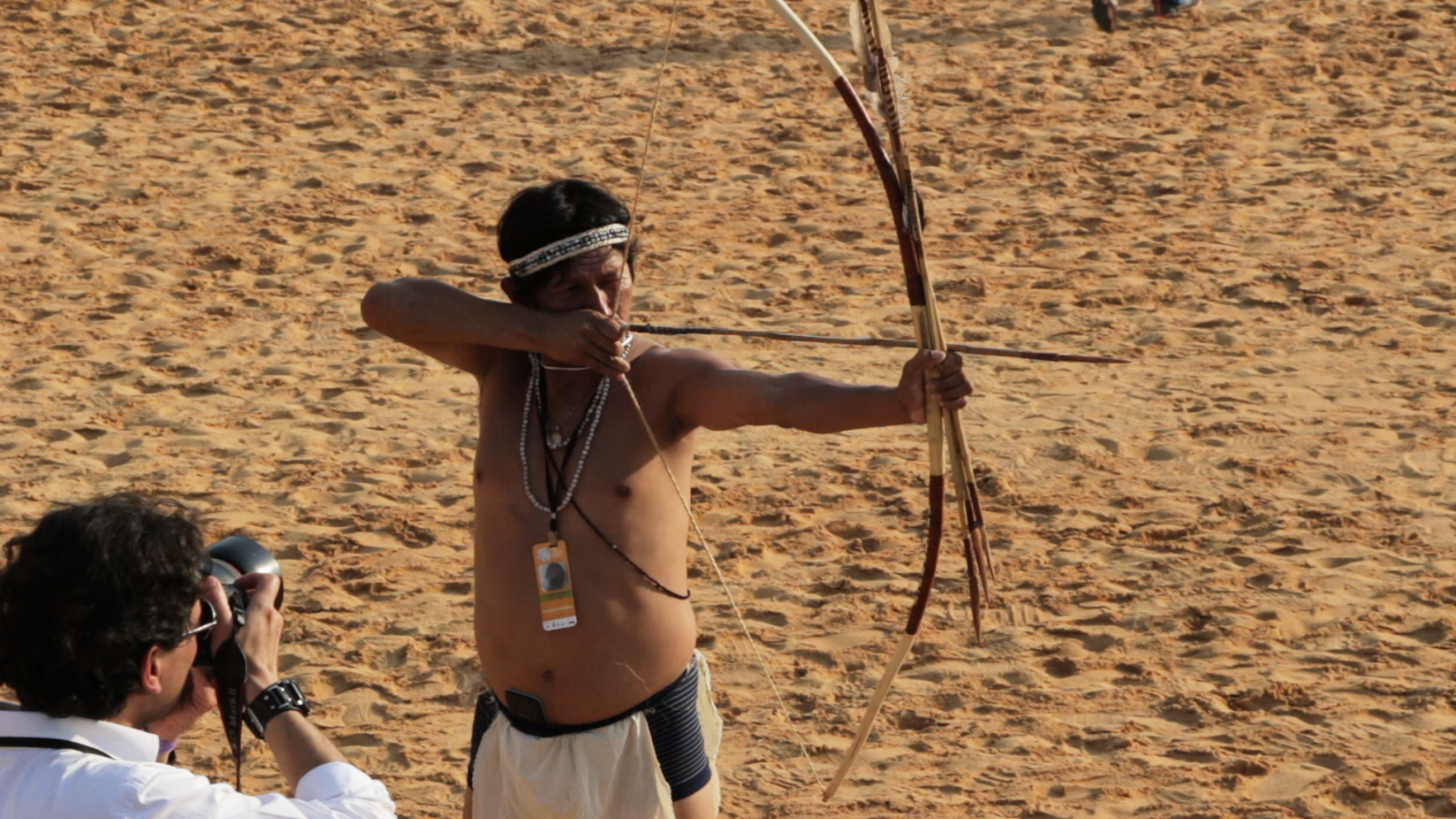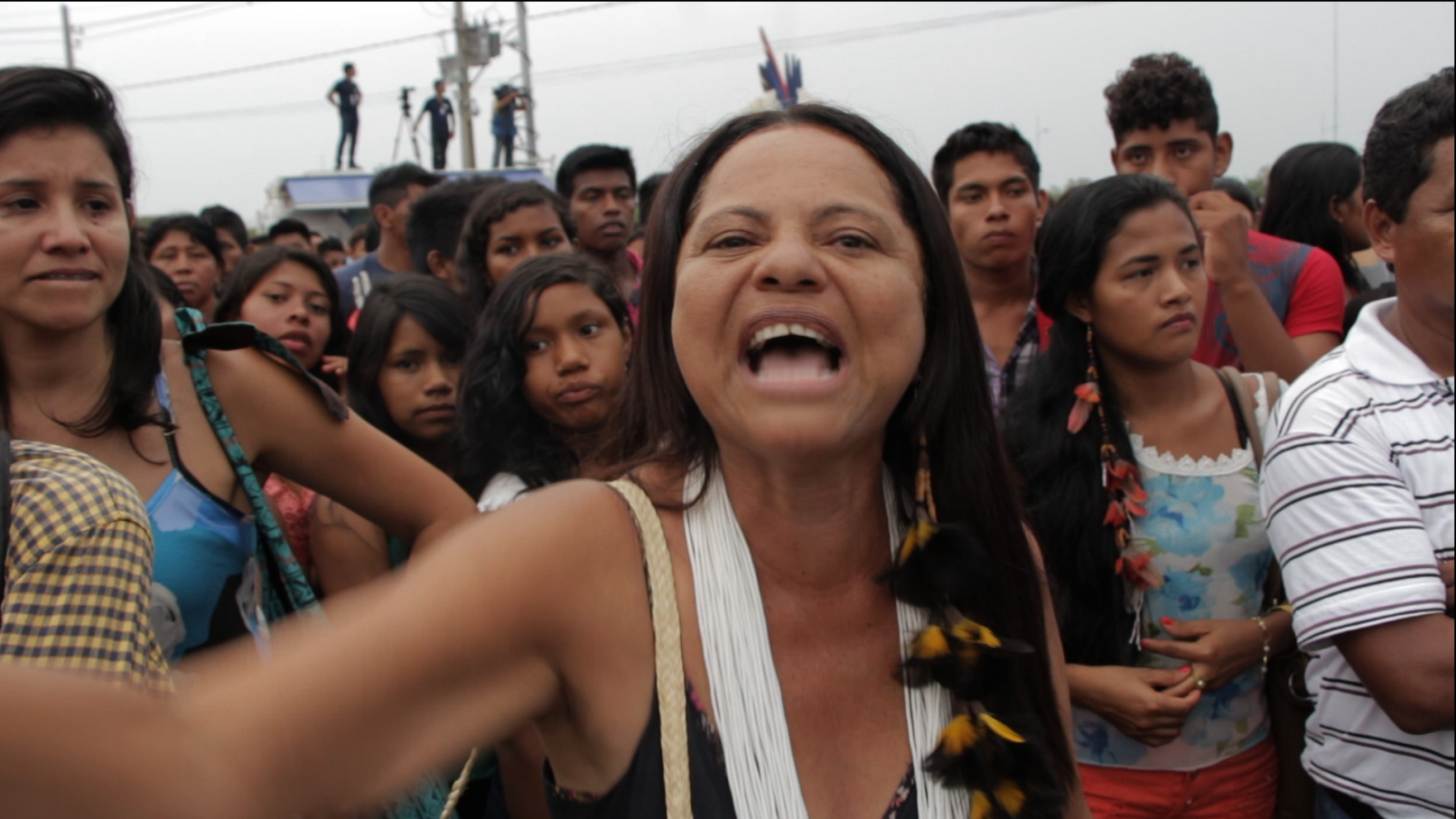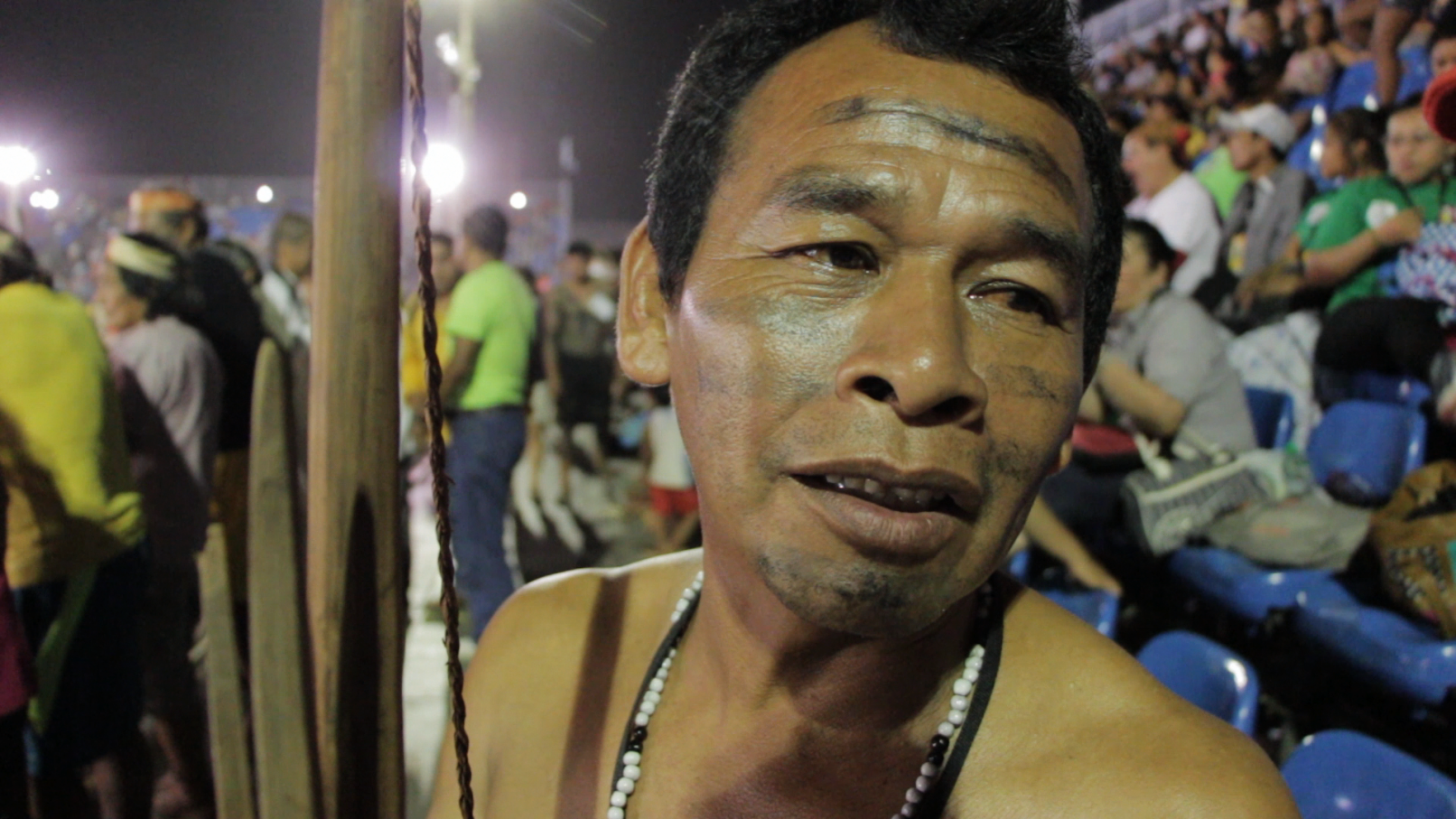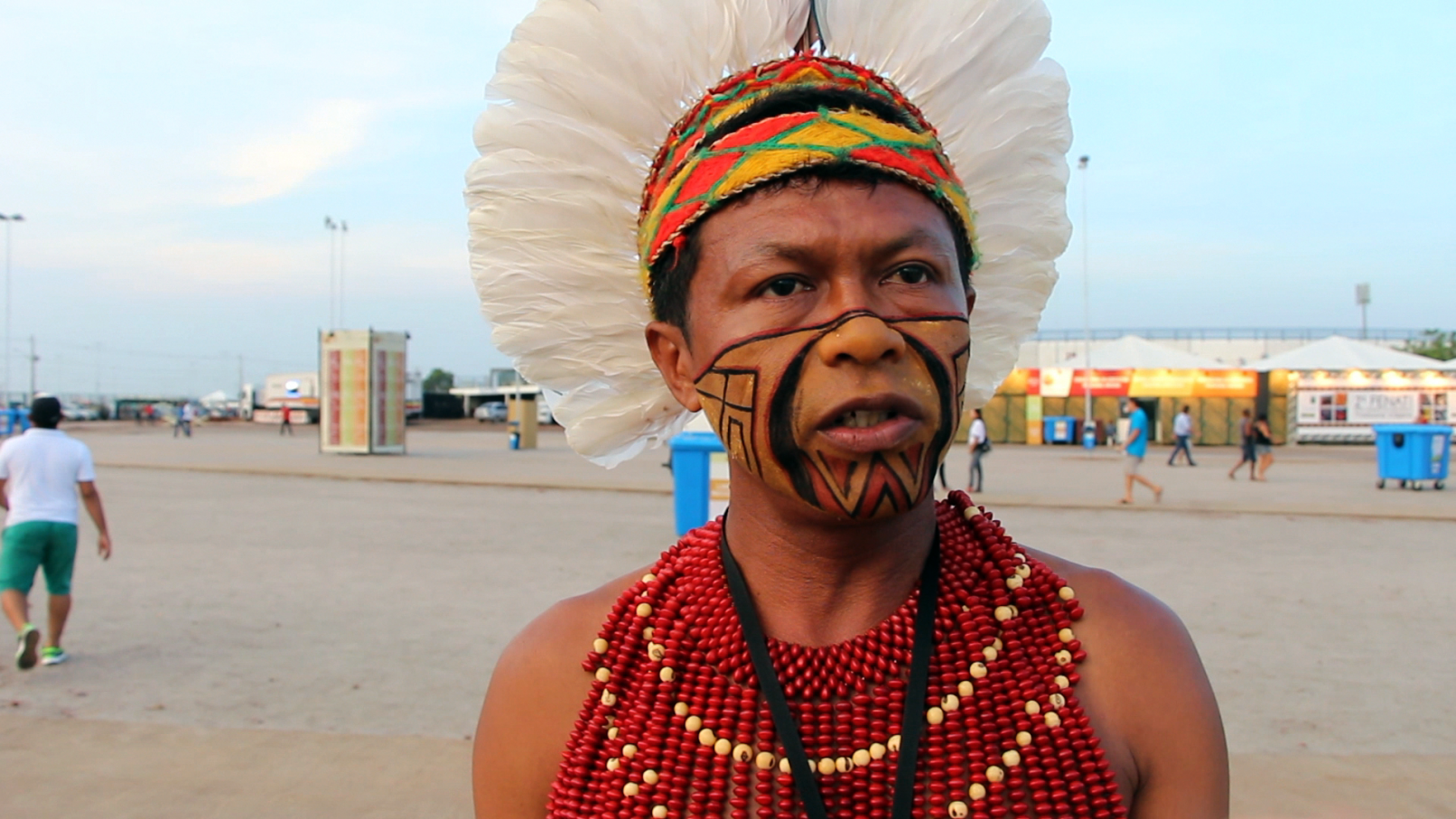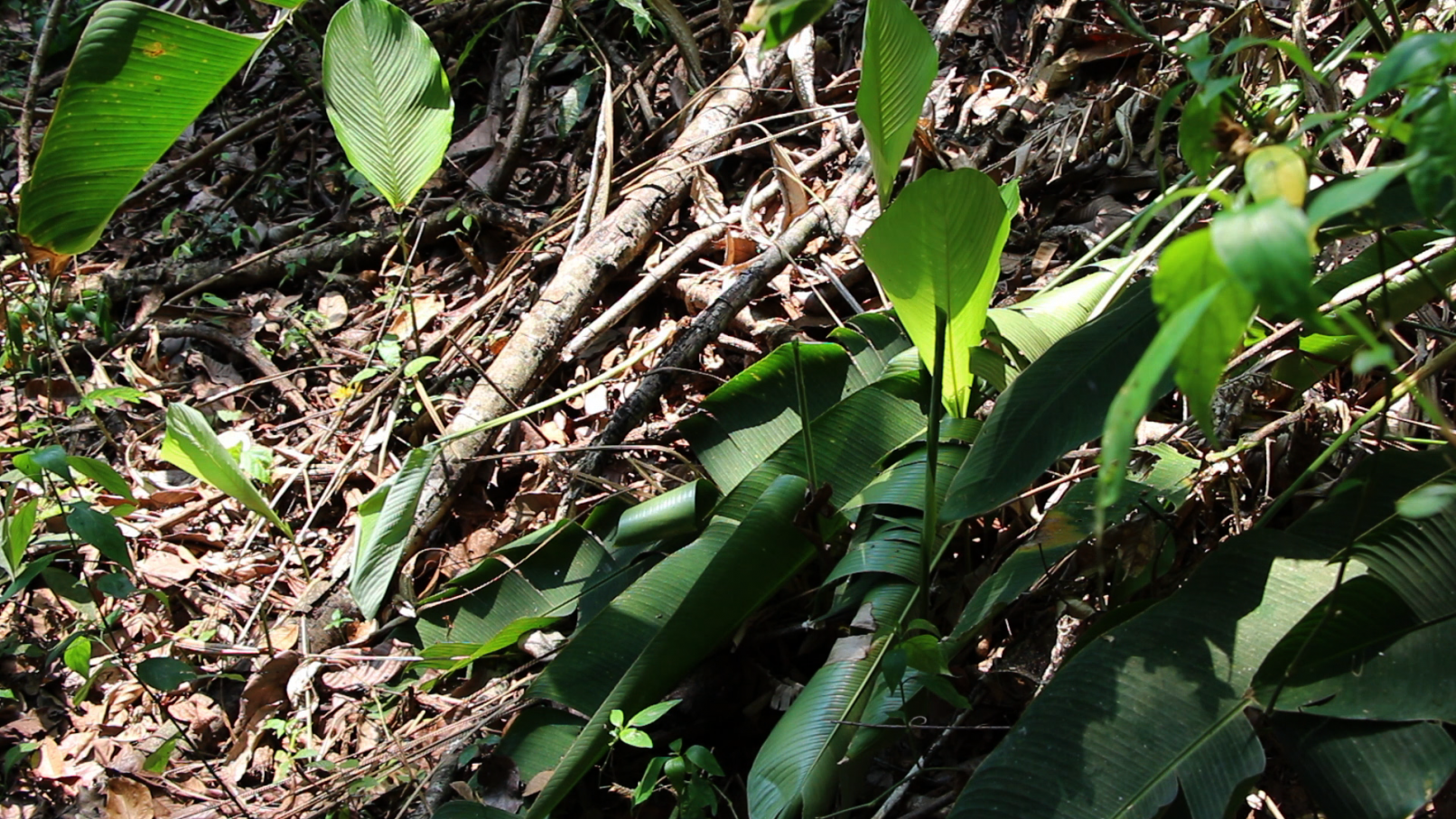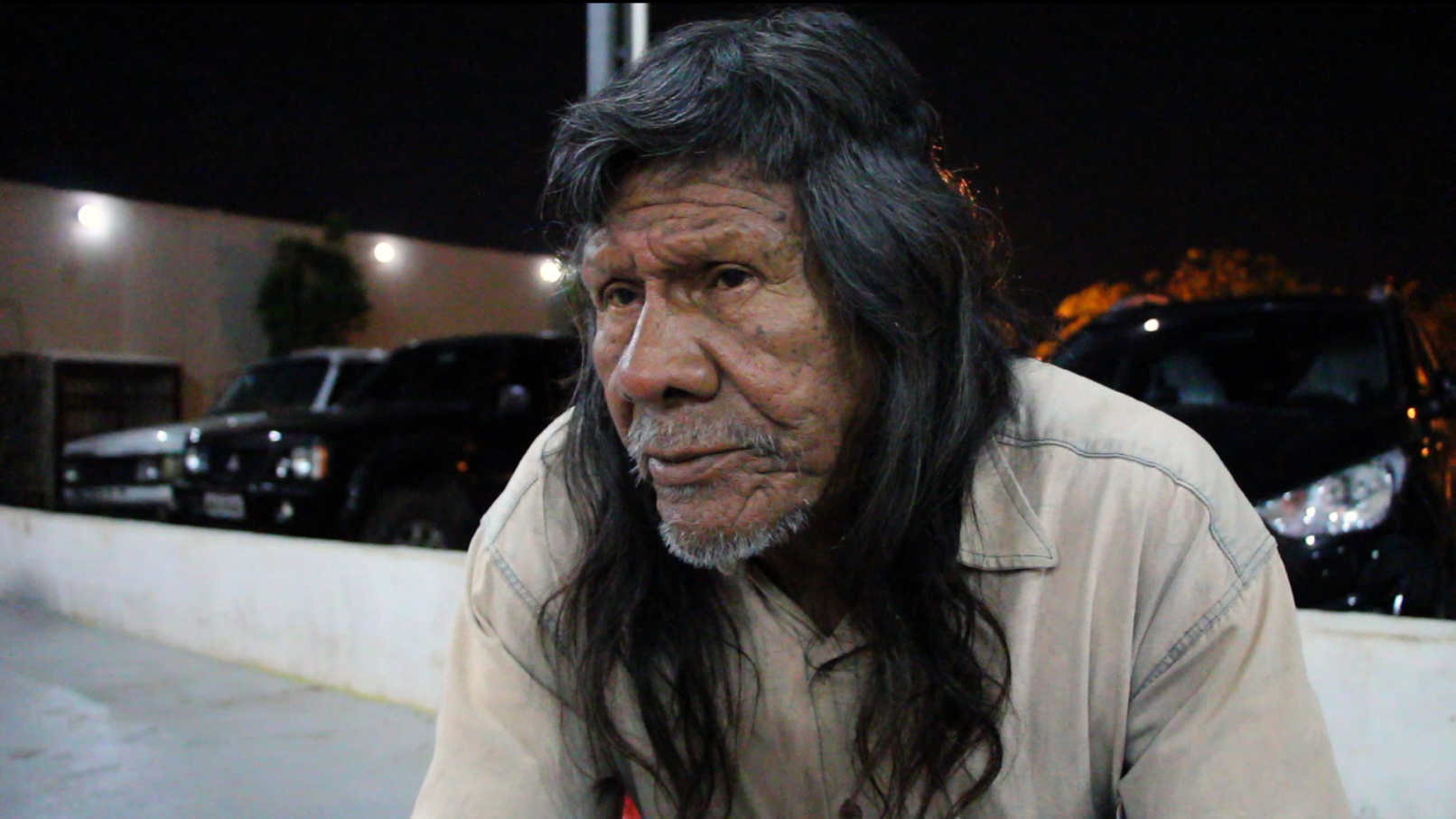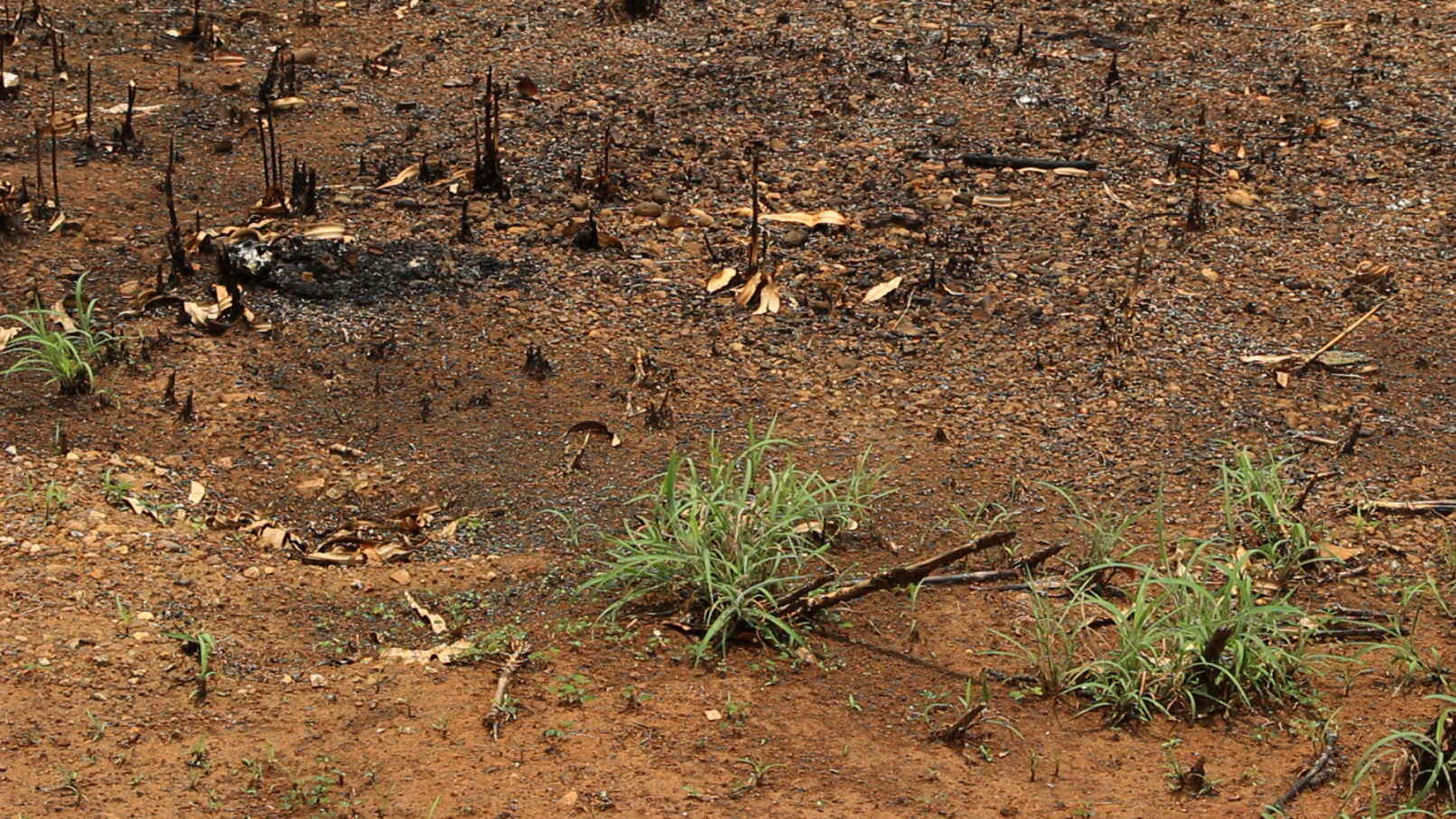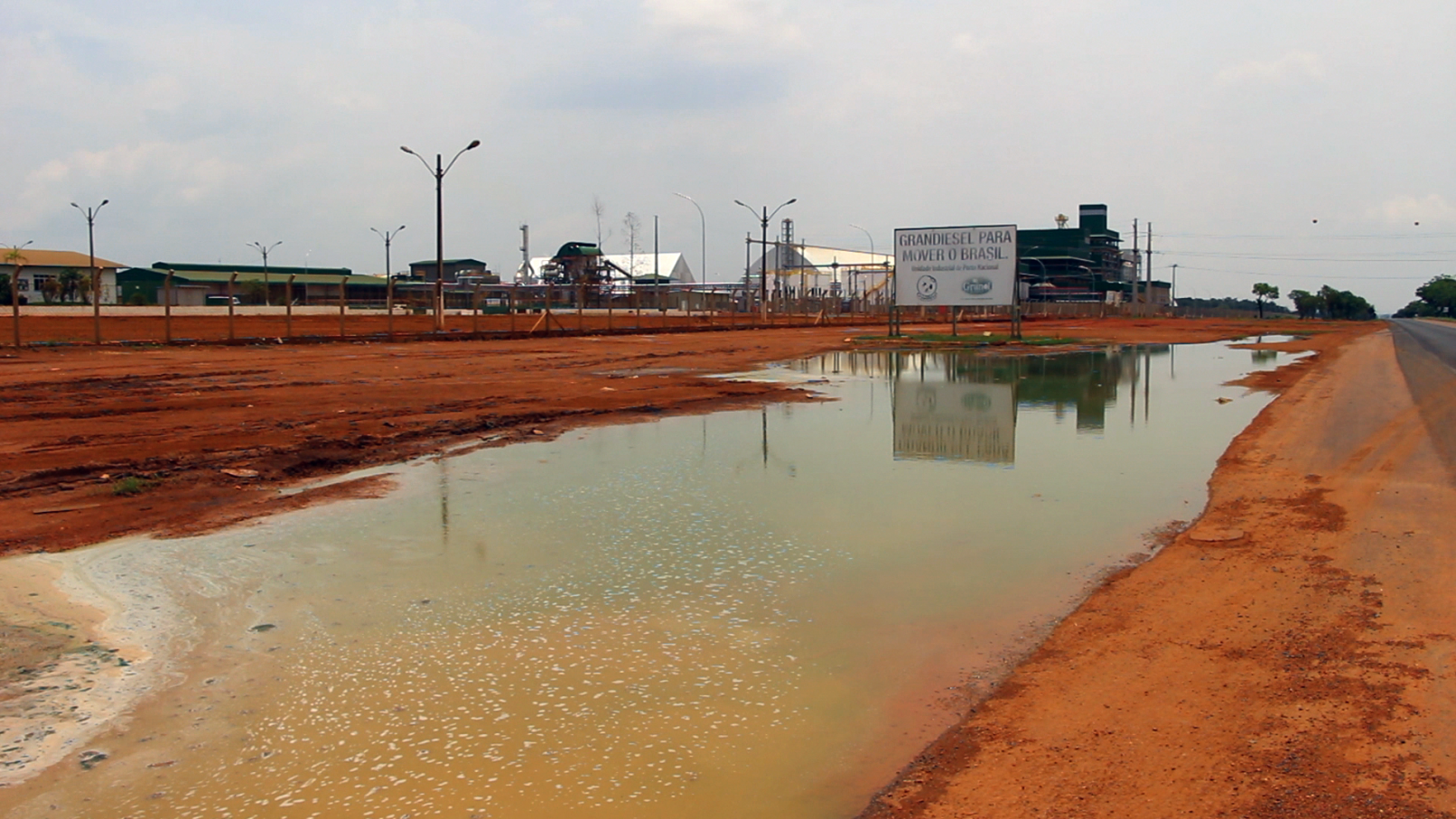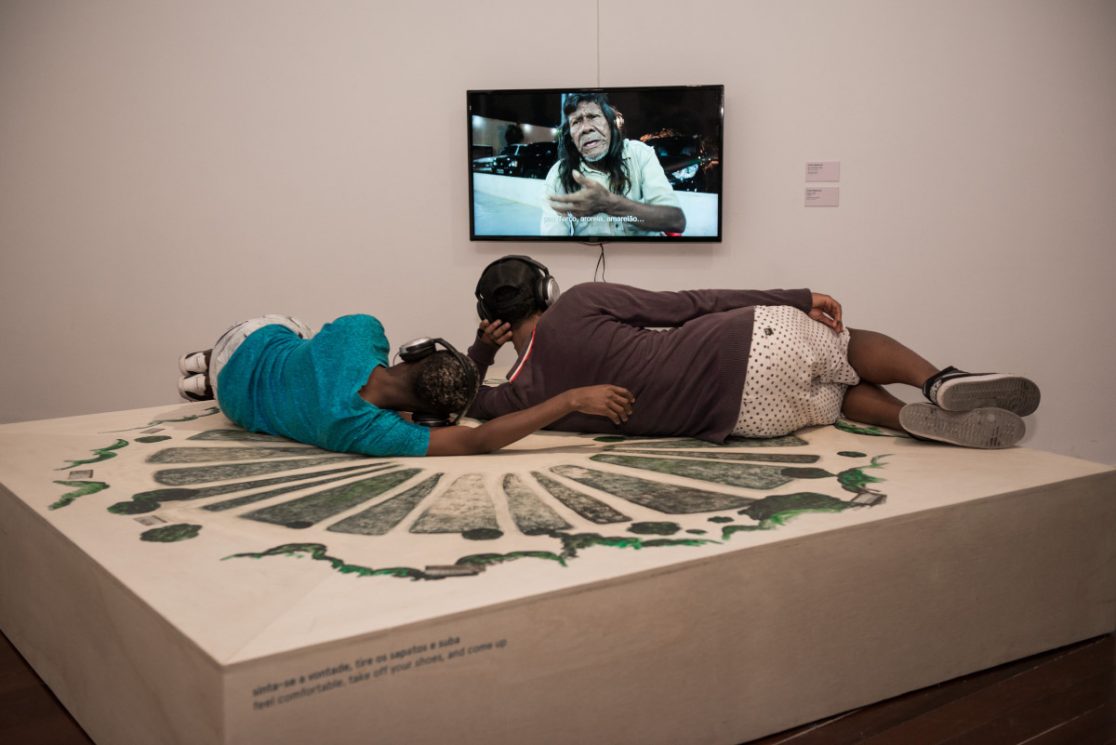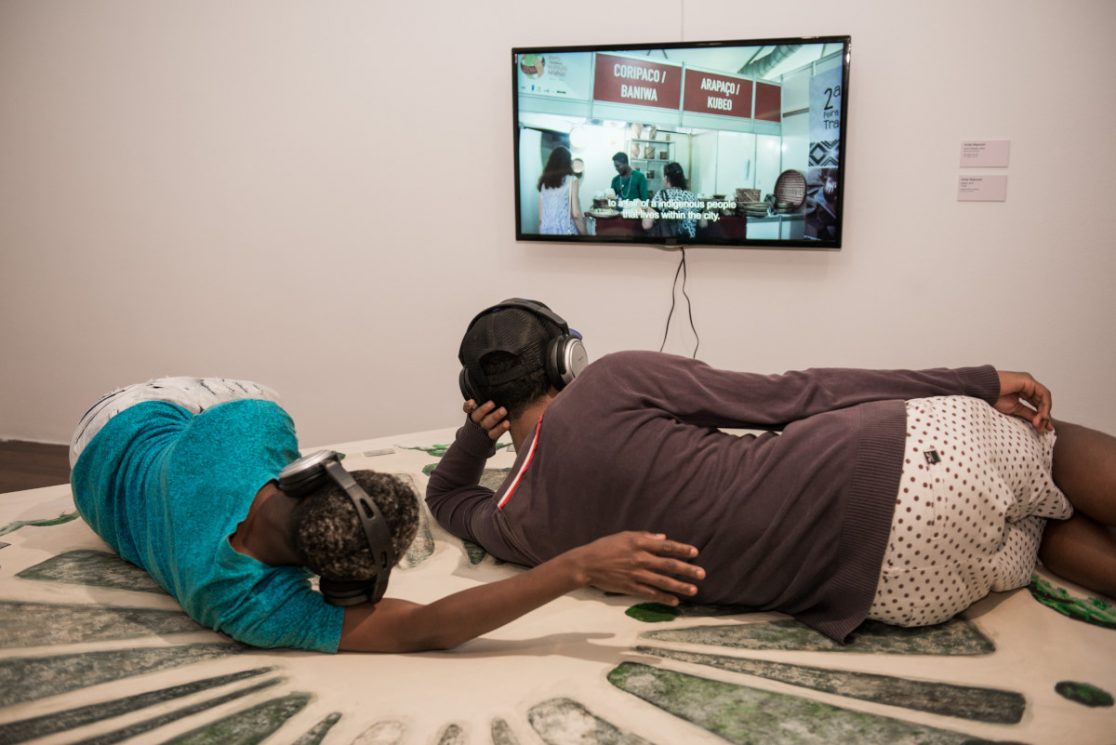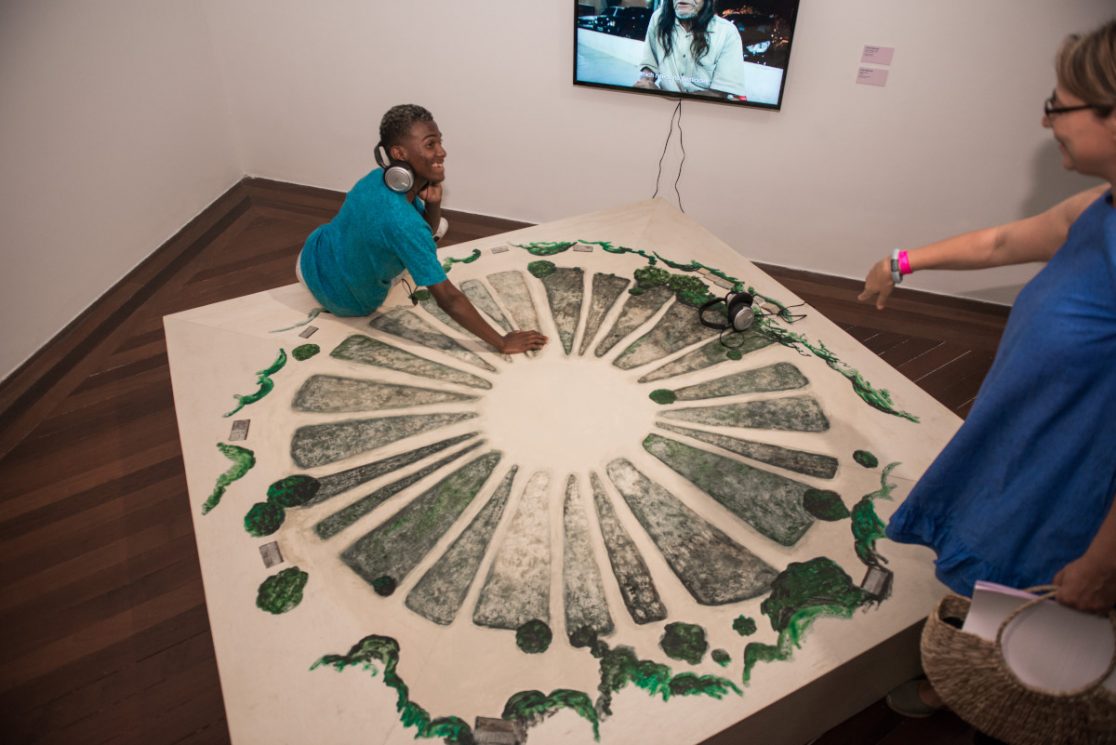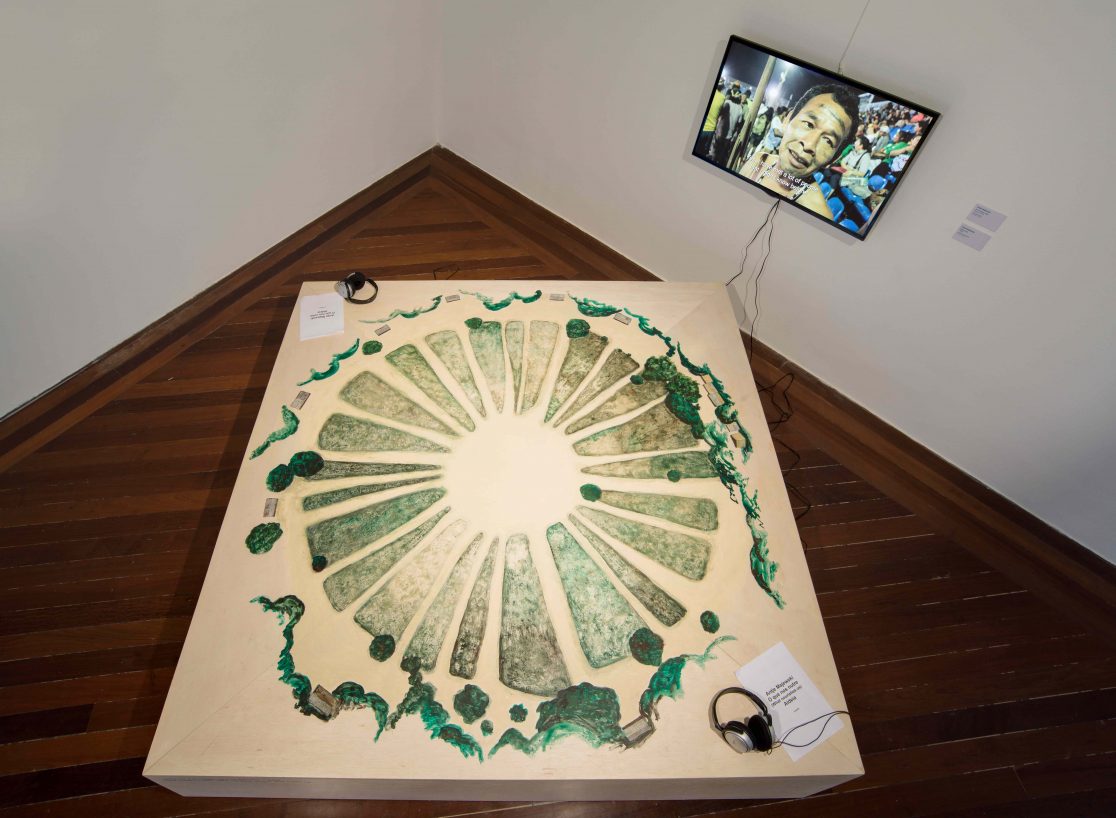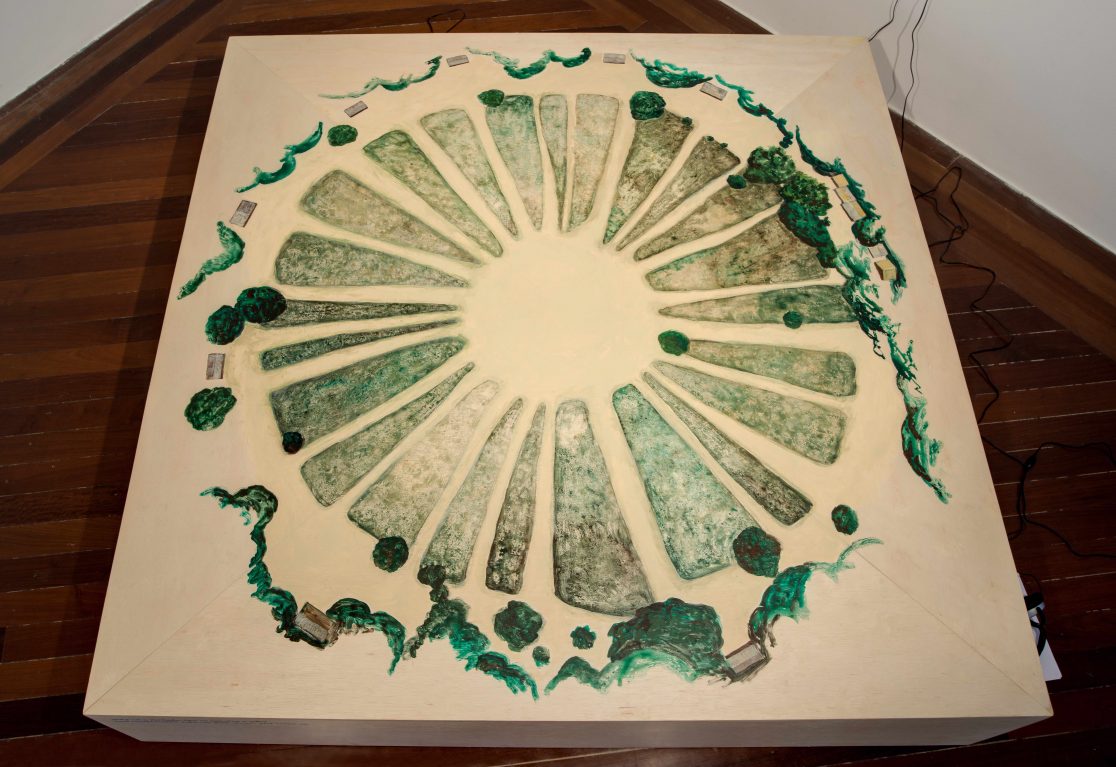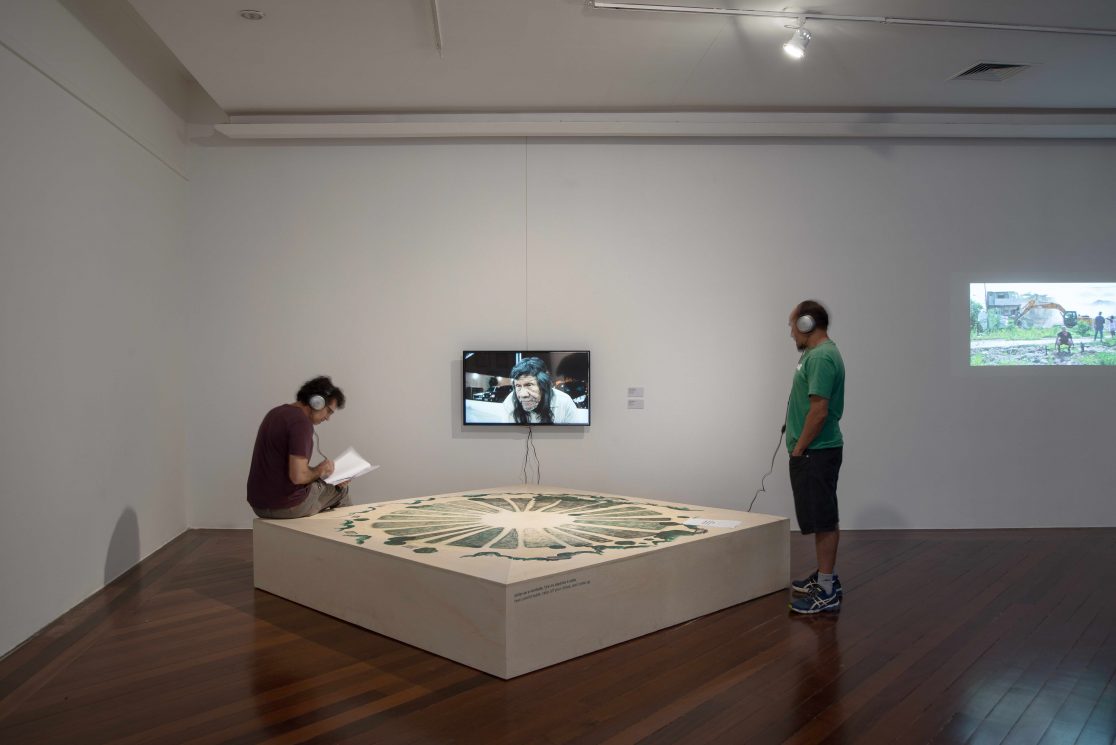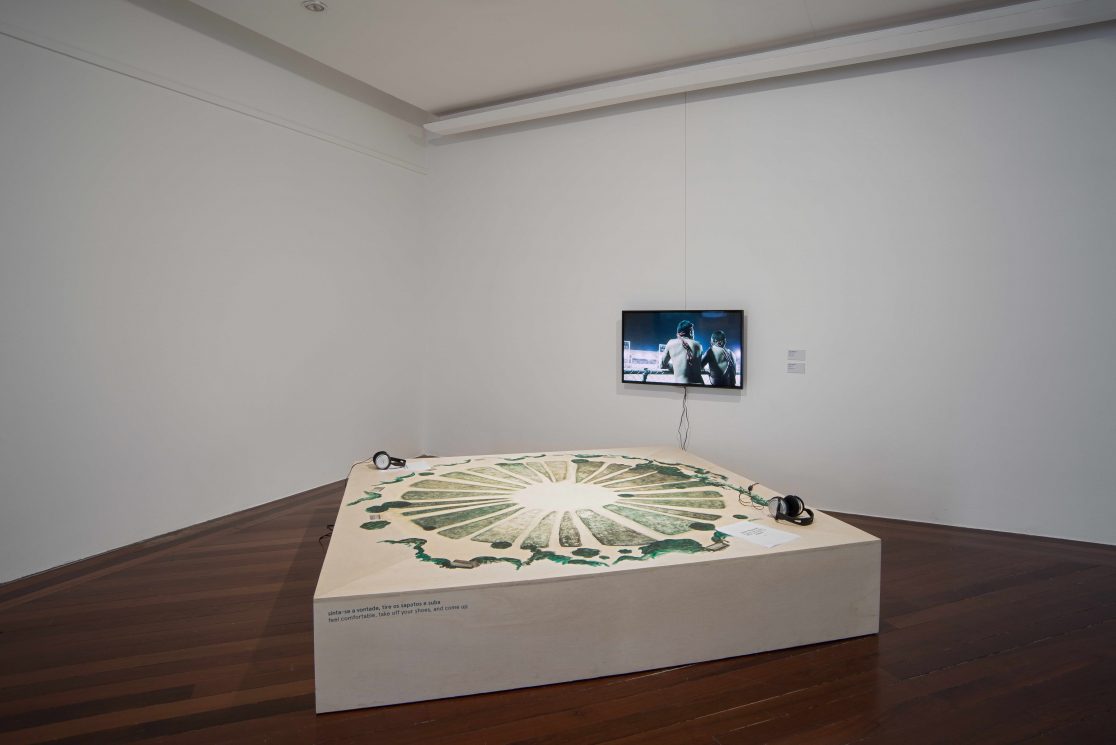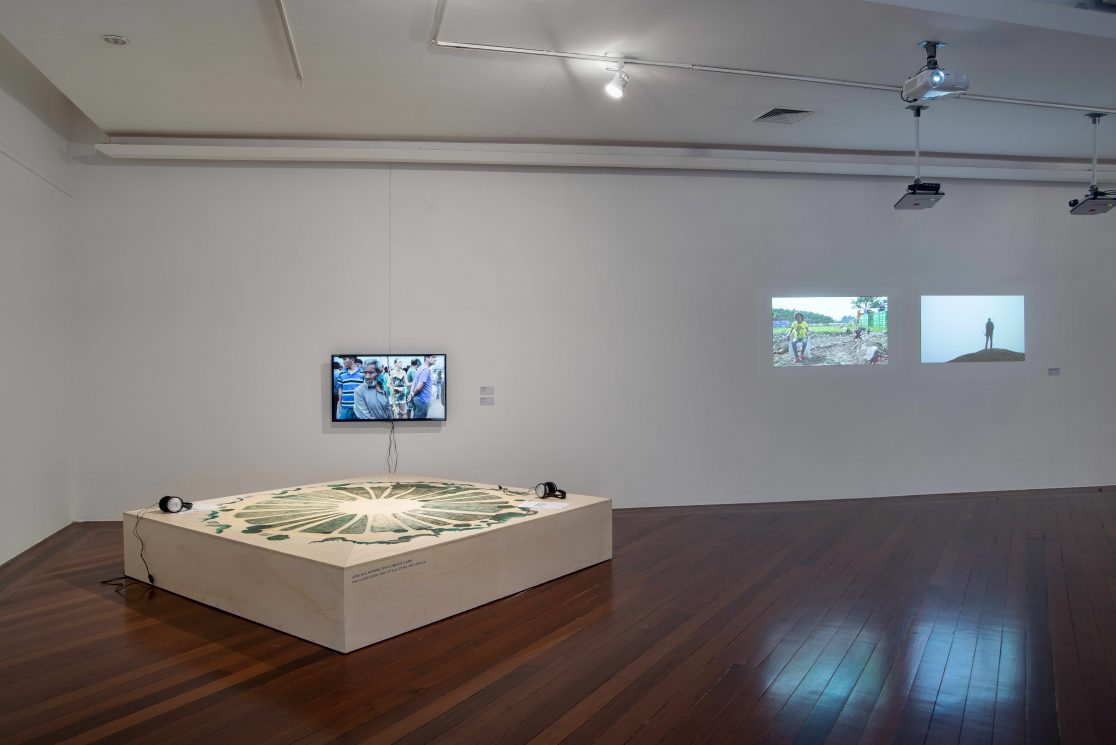O que nos nutre, 2016
The First Indigenous World Games brought together indigenous sportsmen and -women from all over the world and took place in Palmas, Brazil, in autumn 2015. Palmas is a very young city; it was founded in 1990 as an administrative town in the middle of the vast tropical savanna region of the Cerrado. Much less known then the Amazonas jungle, the Cerrado is Brazils second biggest natural habitat and the home to several indigenous people, amongst them the Krahô.
The Krahô decided to boycott the games because they saw them as a way of putting smoke into the eyes of the public by setting up a spectacle with traditionally dressed, smiling indigenous people, while at the same time the basis of their traditional way of life is destroyed. The (former) minister of agriculture, Katia Ebreu, herself a landowner from Palmas / Tocantins, as well as (former) president Dilma Rousseff, attended the gala opening of the games. Both promoted an aggressive increase in industrial farming that robs indigenous people of their land and their traditional agricultural methods. During the first days of the games the congress passed an amendment to the constitution, PEC 215, which aimed at taking the right to demarcate indigenous reservations from the Funai (the indigenous administration), to the national congress – in which the indigenous have no spokespeople. This change of law will make it much easier to shift borders in favor of powerful agrarian, forest and mining companies.
The video tries to show this complex reality through the words of several indigenous people that were interviewed. It asks in which moment bow and arrow became a sport, while it was – and sometimes still is – a way of securing food. The people living in the Cerrado didn’t know the concept of borders, of owned territories and contracts before the Portuguese arrived. Today, some of the reservations they inhabit are natural reserves, or are too small, so they have to rely on the transformation of what used to be their daily life and culture into “handicraft” and “tourist spectacles” that have a “value” in the capitalist system, or to work in the industrial plantations, or in the city.
The Krahô people were doing agriculture for centuries before the white people arrived. Getúlio Krwwakryj Krahô, the pajé (shaman) of the Krahô, who is interviewed in the video, knows all about traditional agriculture, plants and animals, and has established a tradition of seed exchange in his aldeia (village). He boycotted the games as such, but took part in the agricultural forum and supervised the seed exchange within the Indigenous World games. Getúlio Krwwakryj Krahô is very aware of the situation of the Cerrado and sees in their knowledge the only way to reconstruct ecosystems / bioms that have been destroyed by the extensive farming. But the very idea of knowledge would have to change, if their voices are to be heard.
“Some still hunt with bow and arrow. There are some that are involved in studying. And by four or five in the afternoon they play football. And play football. But when it comes to traditional culture – nobody is doing this any more. And I am very worried.
This is why I want to build a school. (…) I have only elementary education, but this is
how I always speak to my people:
Am I a teacher? I think I am.
Am I pajé (shaman)? I think I am.
And then, am I a teller of history? I think I am.
I am now preparing to make a book that I will publish. I will tell my story:
How the world created itself.
How we are in this time…
The story of rain and summer…
Wild animals have a life just like our life. Why are these animals never alone?
Sometimes they are a little alone and then they communicate and they meet again.
And with all they know today with the technology, about the planets, even beyond the planets… And the planet earth! What do they know about it? The planet earth?
Is all the world ready for studies, for learning in every way?”
(Getúlio Krwwakryj Krahô)
